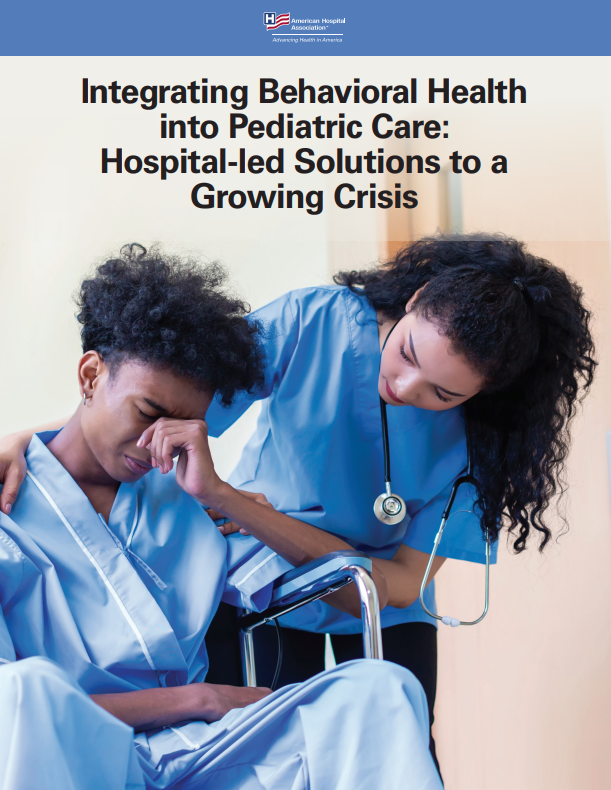Child and Adolescent Mental Health
inteData from the Centers for Disease Control and Prevention shows that as many as 1 in 5 children and adolescents in the United States have a mental, behavioral, or emotional disorder, but only about 20% of this population ever receives care from a specialized mental health provider. Hospitals and health systems can play an important role in ensuring children and adolescents receive the behavioral health care they need to thrive.
Data from the Centers for Disease Control and Prevention shows that as many as 1 in 5 children and adolescents in the United States have a mental, behavioral, or emotional disorder, but only about 20% of this population ever receives care from a specialized mental health provider.
Now, as a result of the effects of the COVID-19 pandemic, the need for accessible, high quality behavioral health care for children and adolescents is even greater. From March 2020 to October 2020, mental health-related emergency department visits increased 24% for children ages 5-11 and 31% for those ages 12-17, as compared with 2019 emergency department visit data. Additionally, as of fall 2022, weekly ED visits among females were at or higher than the pre-pandemic baseline for mental health conditions overall, suicide-related behaviors and drug overdoses.
Hospitals and health systems can play an important role in ensuring children and adolescents receive the behavioral health care they need to thrive. As part of AHA’s behavioral health initiatives, this webpage is designed to provide information, resources, and best practices to better support hospitals and health systems in addressing child and adolescent mental health.
For More Information
American Academy of Pediatrics
American Academy of Child & Adolescent Psychiatry Resource Center
American Foundation for Suicide Prevention
Work2BeWell State-by-State Mental Health Resources for Teens
Child and Adolescent Mental Health Events
Child and Adolescent Mental Health Resources
Even before the COVID pandemic, the mental health and wellness of our young people was failing. The pandemic exacerbated the crisis and made it difficult for them to access needed care; many health care systems are still struggling to meet the challenge.
Other Resources
Get Help Now
If you or a loved one are experiencing an emotional crisis or thoughts of suicide, support is available. The following services provide free, confidential support and are available 24 hours a day, seven days a week.
For emotional support related to COVID-19, call the Disaster Distress Helpline at 800-985-5990 or text TalkWithUs to 66746.
For those experiencing a suicidal crisis, call the Suicide and Crisis Lifeline at 988 or text the Crisis Text Line by texting HOME to 741741.
Featured Resources
Webinar: Competitors Combining Strengths to Deliver Adolescent Behavioral Care
Exploring the Benefits of Pediatric Mental Health Urgent Care Centers
In the News


